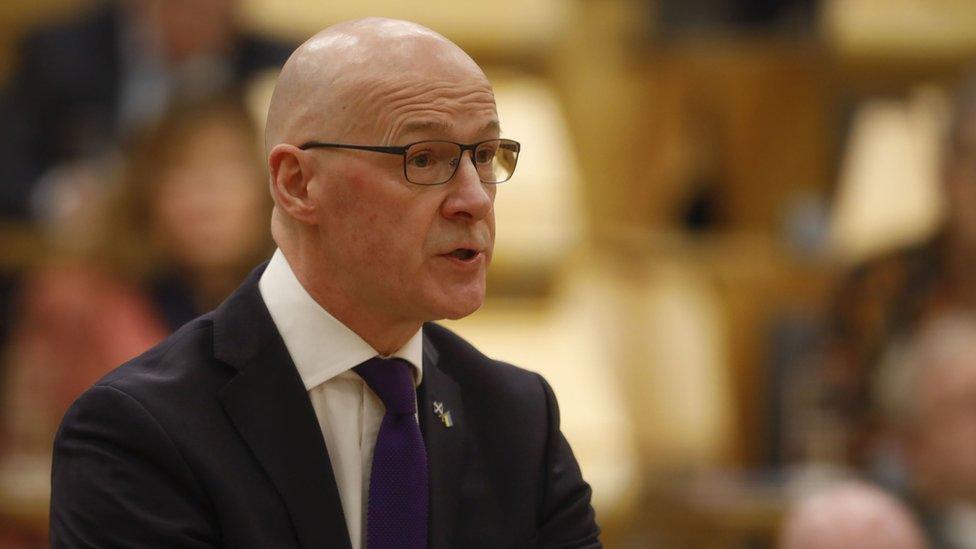Tricky decisions as Scotland's councils face budget shortfalls
- Published
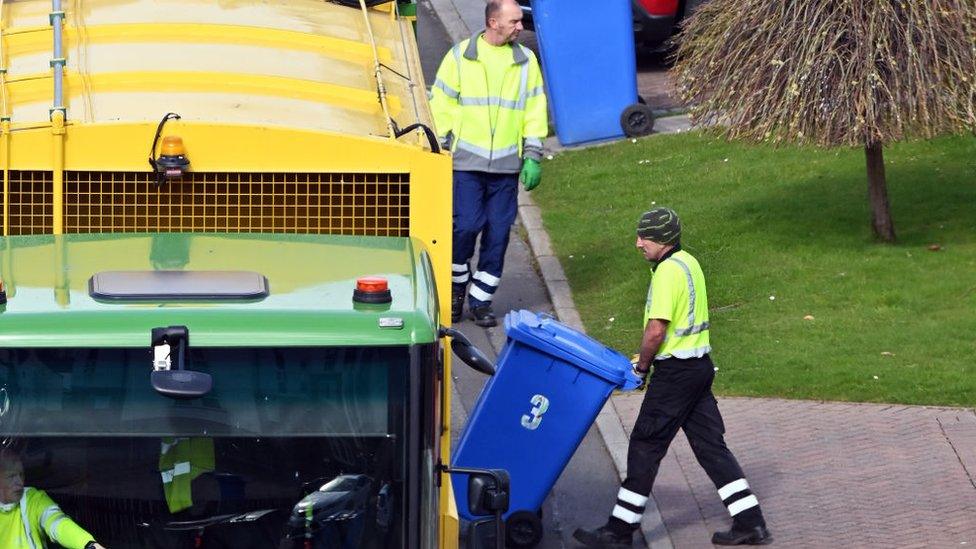
Scotland's councils are facing a £700m funding gap as they prepare to set their budgets for the coming year.
Individual local authorities have shortfalls ranging from around £7m in the Scottish Borders to £120m at Glasgow City Council, according to research by the BBC.
Councils have been appealing to the Scottish government for more cash but ministers have said they have been given a fair settlement in challenging circumstances.
Without additional national funding, councils are considering major cuts to local jobs and services and increases in council tax to balance their books.
The BBC asked all 32 local authorities for more details of the options under consideration. All but Angus and Dumfries & Galloway replied.
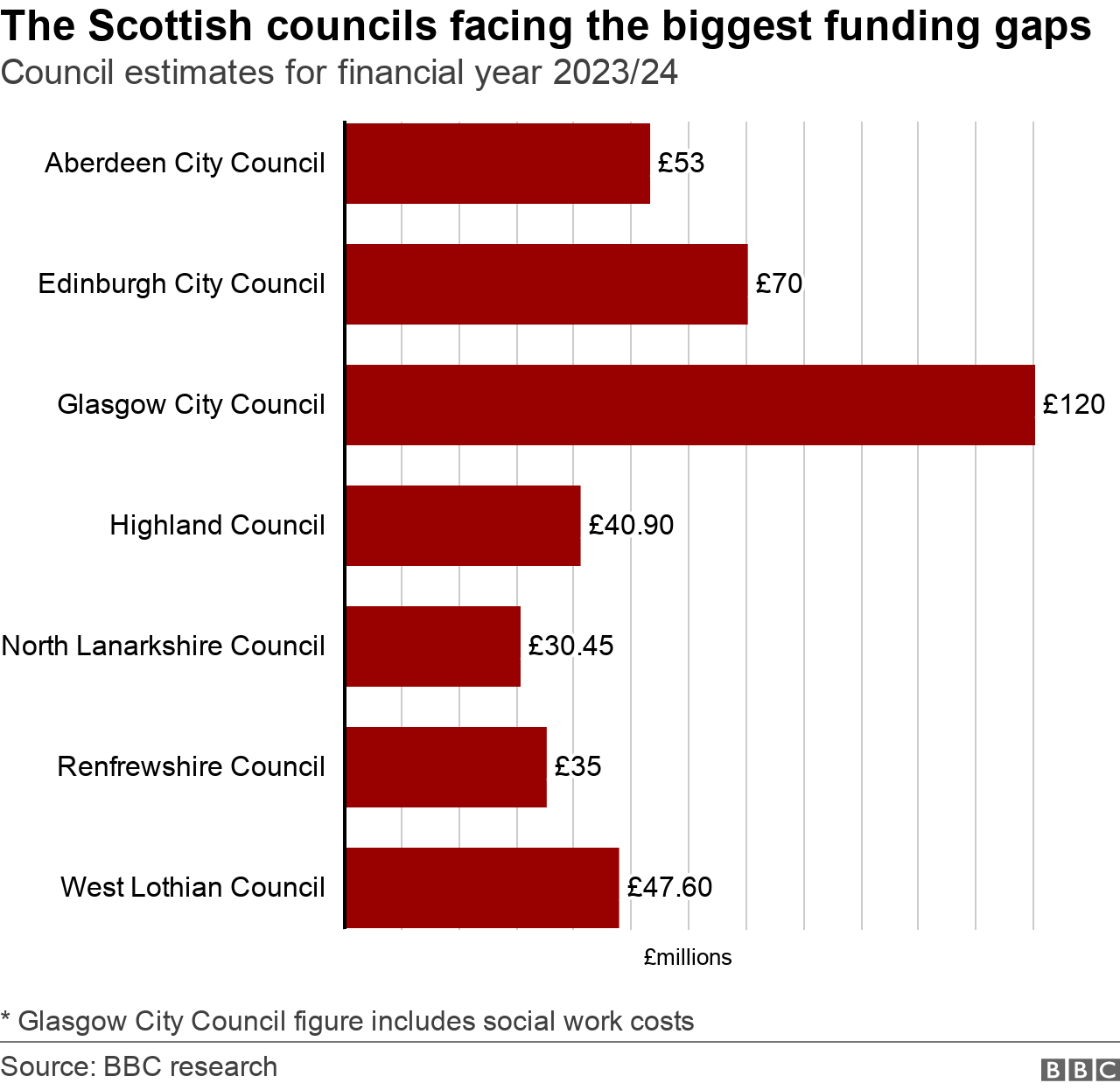
Job cuts
Councils are large employers and cutting staff numbers - or "headcount" in the jargon - could significantly reduce costs.
Western Isles council - Comhairle Nan Eilean Siar - may not replace the only traffic warden on the islands who retired last year.
While that may not be the most unpopular job cut, according to a leaked document from the council body, Cosla, it could be one of more than 7,000 in the next three years.
That figure included the anticipated loss of around 1,750 teachers with proposals for extensive job cuts in Glasgow making headlines, external.
The Scottish government has now stepped in to stop cuts to teaching posts.

Cosla has warned of significant cuts to services which support children and families
The SNP has a manifesto to increase teacher numbers and big cuts to the workforce could worsen relations with unions whose members are already striking over pay.
In a letter to council leaders, seen by the BBC, the education secretary Shirley-Anne Somerville has made clear she will claw back cash from local authorities that don't maintain teacher and pupil support staff numbers at current levels.
Cosla's leadership has said this "means significant cuts will have to be made in other areas that support children, young people, families and our communities".
Service cuts
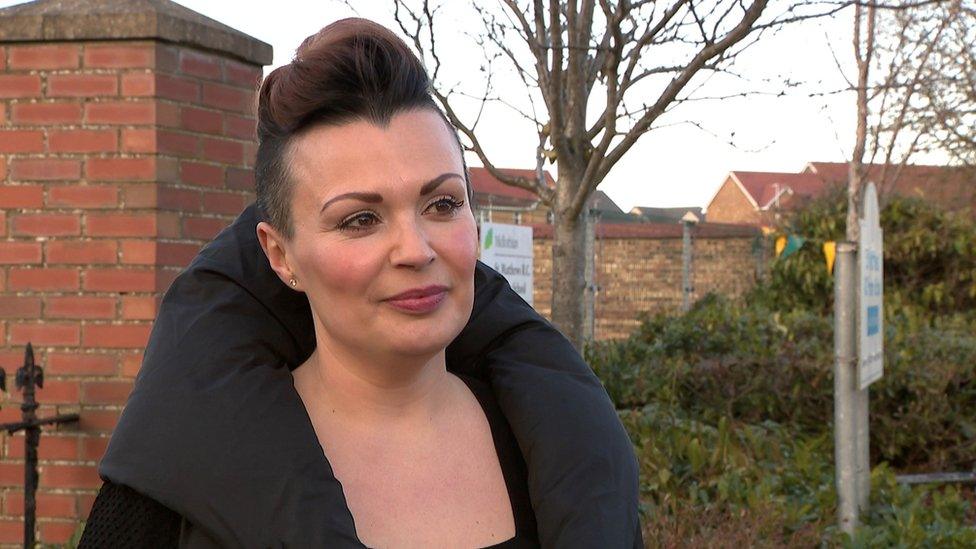
Caroline Haddock wants Midlothian Council to keep St Matthew's RC primary in Rosewell open
Midlothian Council is considering the closure of St Matthew's RC primary school in Rosewell and potential cuts to music tuition.
Caroline Haddock, who has two children at the school, said she was "absolutely devastated" at the possibility it could shut, arguing that it does not make sense because new housing is to be developed in the village.
"We've got capacity, we've got room - where are they going to put the children?" she said. The council has stressed that no final decision has been taken.
In Clackmannanshire, councillors are considering reducing home to school transport and the amount of money spent on the delivery of less popular secondary school subjects.
In North Ayrshire, the Arran outdoor education centre could be shut to save cash.
Beyond education, leisure services face cuts in many areas with Inverclyde Council looking at the closure of Greenock sports centre and Port Glasgow swimming pool.
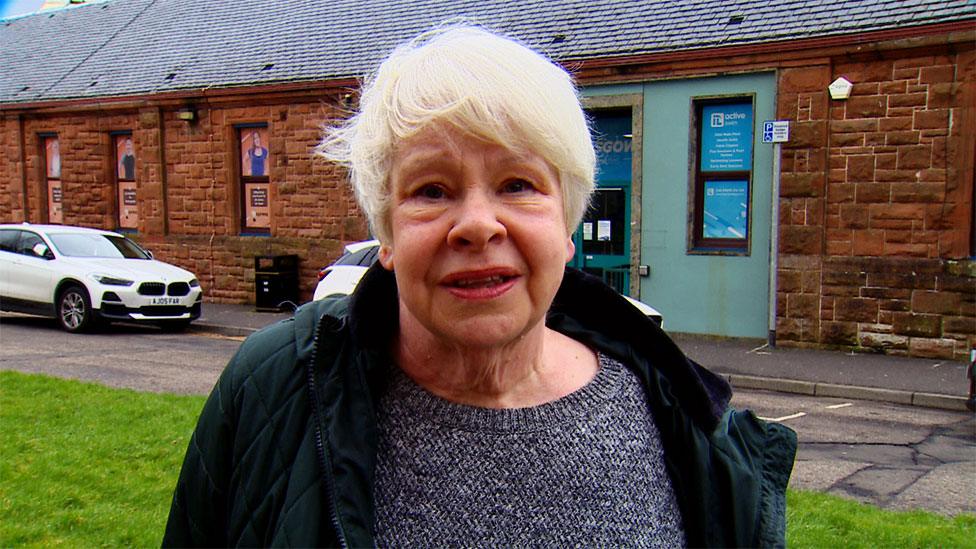
Pamela Atkinson faces a 20 minute bus trip for a swim if her local pool closes
Local swimmer Gary Anderson said he would be "very upset" if the Port Glasgow facility shut and another pool user, Pamela Atkinson said it helped keep her fit and healthy.
Inverclyde Council is still considering a range of cost-saving options.
The library in West Calder is one of several that could be shut under savings plans being considered by West Lothian Council.
In West Dunbartonshire, the council is thinking about reducing the opening hours of its recycling centres.
Many charities are worried about the loss of grant funding from local authorities with concerns being raised from Argyll and Bute, external to North Lanarkshire and Edinburgh.
Service charges
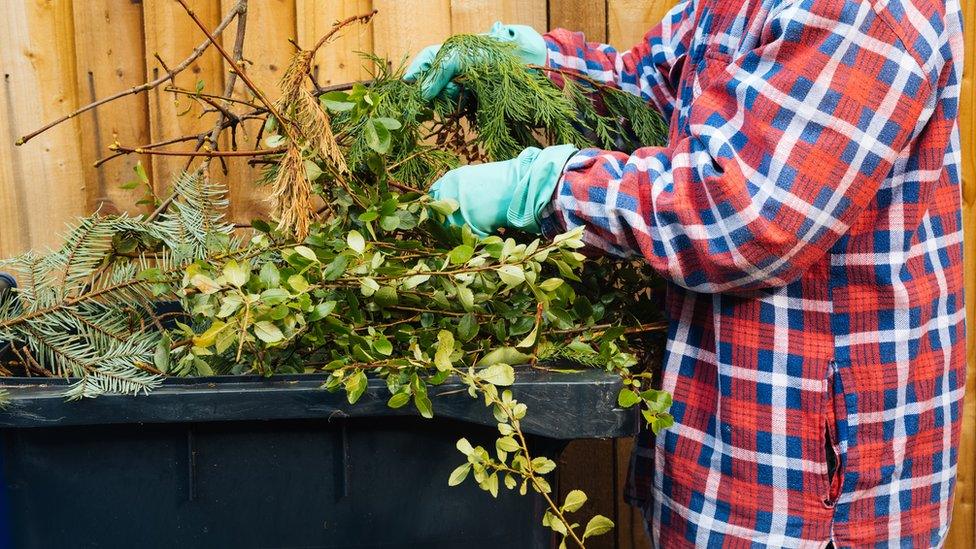
East Renfrewshire Council is considering increasing the charge for picking up garden waste
Introducing or increasing charges for some services can help boost council funds.
Aberdeen City Council is putting up most parking charges, while West Dunbartonshire thinks it could generate an extra £325,000 through parking enforcement.
In East Ayrshire, they are looking at a 4% increase in the rent charged for temporary accommodation.
Moray Council is proposing a 10% increase in the cost of burying the dead, with charges for the interment of local adults to rise from £949 to £1,044.
In East Renfrewshire, there is already a £40 charge, on top of council tax, for households that want garden waste removed. This could go up to £60.
Council tax
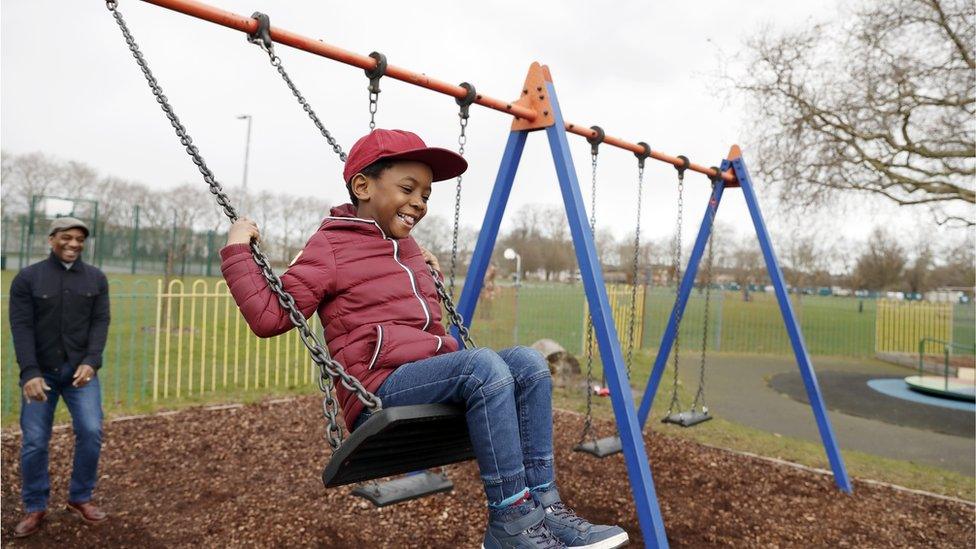
Council tax helps to fund local services, including playgrounds
Council tax only generates about 13% of local government funding. Most of their cash comes from the Scottish government.
That means small council tax increases don't generate huge amounts of extra money compared to what councils say they need.
Big increases are unlikely to be considered widely acceptable when many households are already struggling with cost of living pressures.
Aberdeenshire Council agreed to a 4% increase in council tax on Thursday, a decision which will see Band D bills go up by more than £50 a year.
Typically, councils seem to be looking at increases of 3-5%.
In future, councils may have broader tax powers at their disposal including a local visitor levy, which is sometimes dubbed the "tourist tax".
For sale
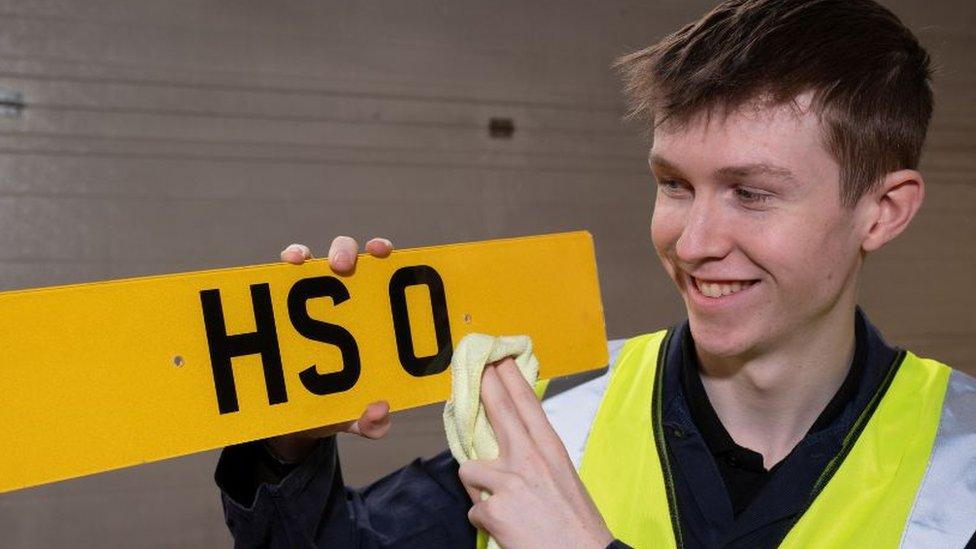
East Renfrewshire Council trainee Aiden Haddock has been getting the number plate ready for sale
Selling off buildings and other things councils own and consider they no longer need is another way they can raise money.
East Renfrewshire Council has decided to sell its distinctive civic number plate HS 0 to the highest bidder, with experts estimating it could be worth £150-250,000.
Falkirk Council has agreed in principle to offload up to 133 properties that it describes as ageing and in need of repair.
It is willing to transfer these buildings to community organisations, rather than sell them, to save on maintenance costs.
Where asset transfers are not possible these buildings could be closed over the next few years.
The list includes Polmonthill ski centre, Stenhousemuir gym and Bo'ness recreation centre.
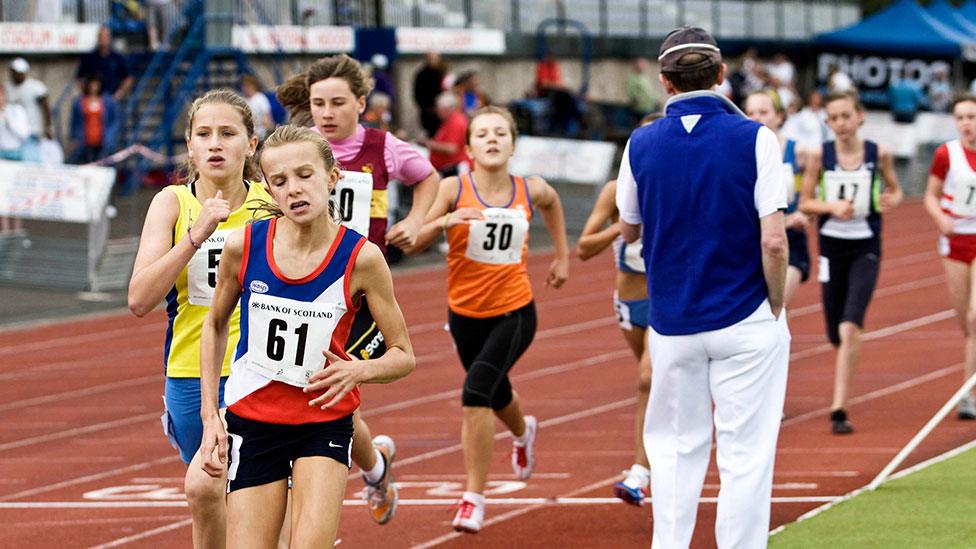
Grangemouth Stadium has hosted youth athletics championships
There's particular concern about the future of Grangemouth stadium which describes itself as "one of the premier training facilities in Scotland".
The athlete Eilish McColgan, who first ran for Scotland at the venue, has said: "It must be saved because it is so important for track and field in Scotland."
Falkirk Council have carried out a consultation on their proposals to inform their decision making.
There are some other options available to councils.
Some may choose to draw on their financial reserves - money typically kept aside for emergencies and other unforeseen challenges.
Others are planning to spread the cost of paying back PPP/PFI debts, for things like school buildings, over a longer period of time.
South Ayrshire started "reprofiling" its debts in December 2022, Fife is looking to do the same and East Dunbartonshire said it was continuing to "explore financial flexibilities".
Financial position
Councils have faced a long term squeeze on their finances and argue that they are underfunded by the Scottish government.
Ministers accept that councils are under pressure but point out that they are receiving a cash uplift of more than half a billion pounds in 2023/24.
Cosla says most of that cash is ring-fenced for particular national priorities and gives councils little flexibility.
Independent analysis by the Institute for Fiscal Studies has found that when new and expanding responsibilities are taken into account "grant funding for Scottish councils is set to fall by 0.8% in real terms this April".
"Even if Scottish councils were to increase their council tax rates by 5% in April, their overall funding would still fall by about 0.3% in real terms," the institute said. , external
All Scotland's councils are obliged to set their budgets for 2023/24 in the coming weeks with many of them making their decisions on either 23 February or 1 March.
- Attribution
- Published26 January 2023
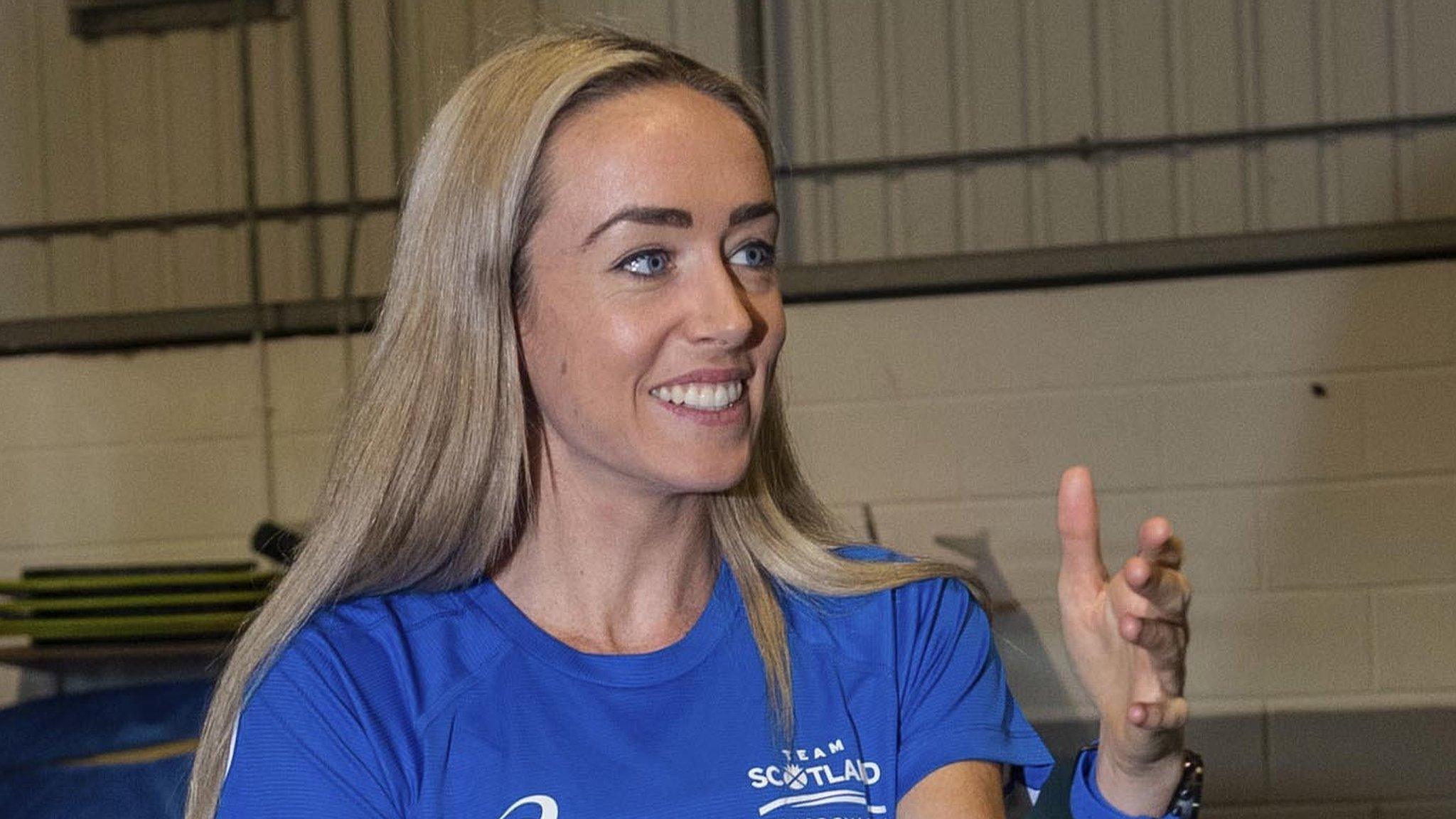
- Published18 January 2023

- Published31 January 2023
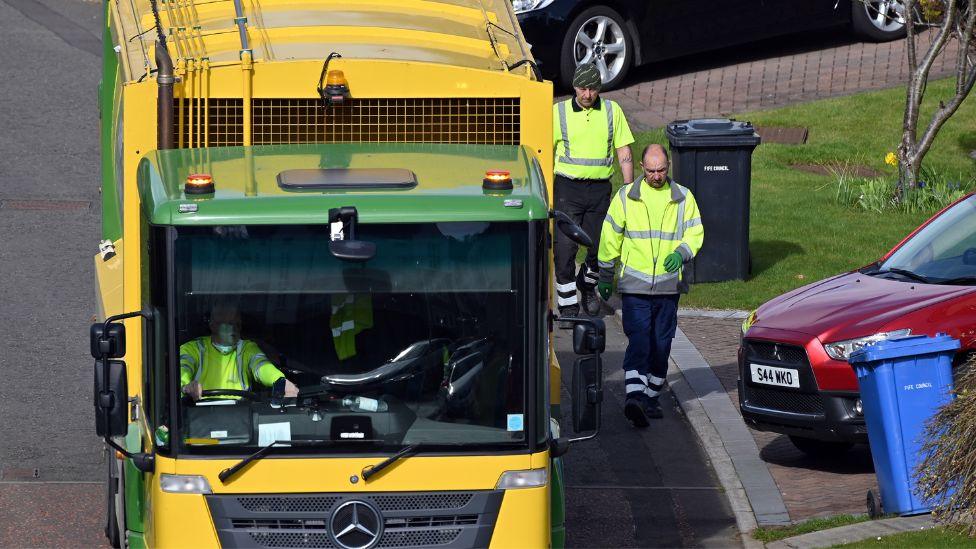
- Published16 December 2022
